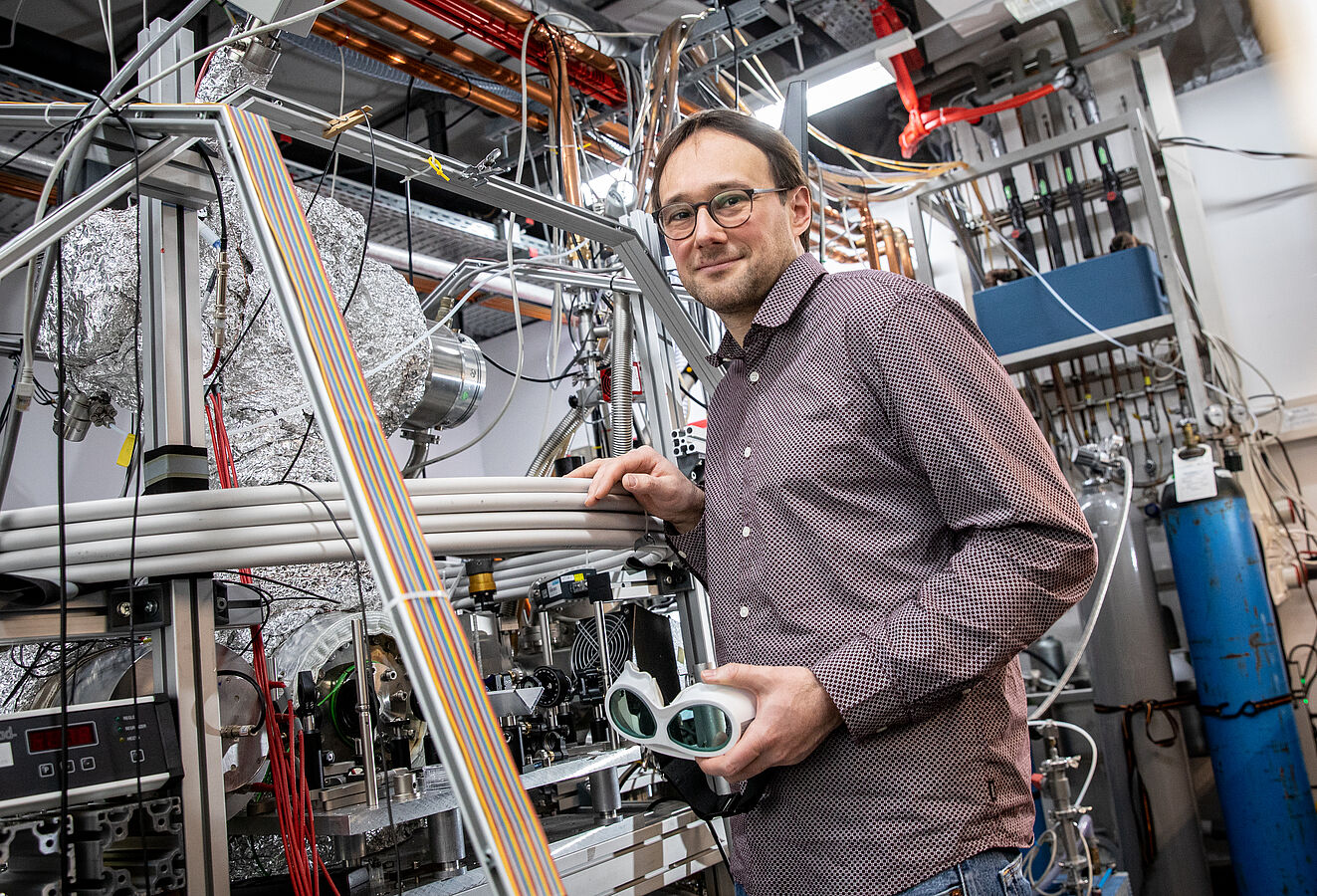In a highly competitive and thorough procedure it is awarded to established researchers with 7-12 years of experience since completion of their PhD who present an excellent research proposal and already have a scientific track record showing great promise. The ERC Consolidator Grant is endowed with up to 2.0 million Euro over a funding period of 5 years and intended to consolidate an independent, excellent research team from all domains of science. Jochen Mikosch receives the grant to perform basic research on time-resolved structural dynamics of chemical reactions.
Molecules consist of atoms, which are held together by chemical bonds. In a chemical reaction two molecules come so close that bonds are broken and new bonds are formed. The configurations during the chemical transformation, being neither reactants nor products, are called the transition state. During this ultrashort, critical time window the outcome of the chemical reaction is determined. Experimentally depicting the structural transformations during the transition state would hence be of fundamental importance for chemistry.
Efforts to depict the structural transformations during chemical reactions have thus far fallen short due to a conceptual experimental problem: The start-time dilemma. In conventional samples the reactants are distributed over a wide range of spatial configurations and even with an ultrashort laser pulse there is no external control over the precise moment when a reaction takes place.
The funded project c-TSD-p aims to solve this dilemma by bringing together two key ingredients: First, reaction partners are held closely together, in a well-defined initial configuration, within a reaction precursor. Such a complex allows initiating the chemical reaction at a defined time with a femtosecond laser pulse. Moreover, the tunable wavelength of the laser pulse allows controlling the speed with which the two reactions partners encounter each other. Second, as a function of delay after the initiating laser pulse, the three-dimensional structure of the transition state is imaged with Coulomb Explosion Imaging. Coulomb explosion is a tool from the toolbox of Attosecond Science: Within a very short time the binding electrons are removed with a second laser pulse such that the positively charged atomic fragments repel each other. An experimental determination of the fragment momenta in coincidence allows constructing the evolving chemical structure.
c-TSD-p will use cutting edge laser technology, both at MBI and at X-ray free electron lasers such as the recently commissioned European XFEL in Hamburg to answer key fundamental questions surrounding transition state dynamics. Such understanding could help to figure out mechanisms of optimizing reaction pathways in applications, such as in synthetic chemistry. Within the project several positions for PhD students and Postdocs will become available.
Jochen Mikosch is group leader and project coordinator at the Max Born Institute for Nonlinear Optics and Short Pulse Spectroscopy in the Forschungsverbund Berlin. He is known for his studies applying Attosecond Science to molecules and chemical dynamics. Following undergraduate and graduate studies in Freiburg, Heidelberg, and Cambridge (UK), he defended his PhD with Roland Wester in Freiburg in 2008 and went on to a Postdoctoral fellowship with Albert Stolow at the National Research.


